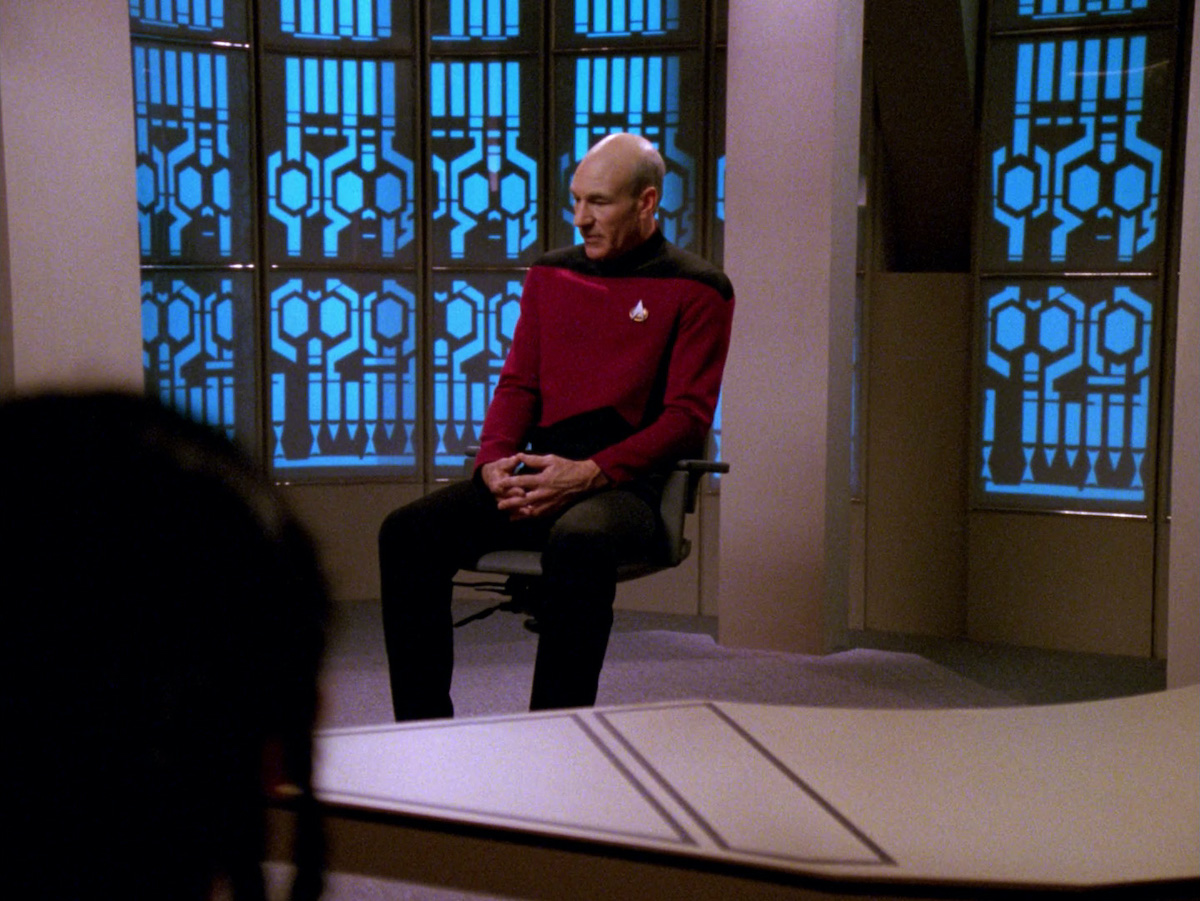“I’ve brought down bigger men than you, Picard!”
This grim and somewhat silly episode puts a plodding, McCarthy-ish witchhunt aboard the Enterprise, which slowly expands its circle of accusation from a visiting Klingon functionary to a mid-career Starfleet crewman to Captain Picard himself. The episode has a nice guest turn from the regal Jean Simmons, who brings some fire to her role as crusading Admiral Norah Satie. But airing decades after the HUAC trials, and a decade prior to 9/11 and its fallout, “The Drumhead” seems weirdly unmotivated as a piece of drama. It’s either tying up a social issue long past its stale date, or commenting imperiously on an in-built human tendency to allow paranoia to run rampant in times of uncertainty. Either way, it’s heavy-handed.
The final act is a hum-dinger nonetheless, giving us a substantial Patrick Stewart monologue as Picard addresses the tribunal and all the ways in which it is impeaching basic Federation freedoms by its actions. Satie’s subsequent interrogation of Picard – where she reveals that he has violated the Prime Directive a total of nine times, before probing him about his experiences with the Borg and quoting the Wolf 359 death toll at nearly 11,000 – is sharply staged by director Jonathan Frakes. The climax doesn’t come to much (Worf learns not to be such a fascist, I guess), but as a scene study, the performances have all the bells and whistles.
“The Drumhead” is composer Ron Jones’ final effort on Star Trek: The Next Generation. The way he tells it, Rick Berman finally fired him, for writing scores that were “too bombastic,” after having been repeatedly warned to tone it down. Jones gets to circle back on his classic music for “The Best of Both Worlds” here, in the scene where Satie attacks Picard for his actions during the Borg incident, but it’s an otherwise unremarkable piece of scoring for the most part. It’s a shame to see Jones go nonetheless – his work was consistently excellent, setting a standard for composition in the modern franchise that was never equaled by any of his contemporaries or successors. He diligently, intelligently created musical signatures for his episodes that brought distinct emotional flavours that are memorable even now, twenty years later. A boxed set of all of his work for Star Trek: The Next Generation was released a couple of years ago, and it’s well worth the investment.
Two Enterprises out of five.

Blogging The Next Generation runs every Tuesday as I work my way through every episode of Star Trek: The Next Generation on blu-ray. Season Four is in stores now, and here comes Season Five.
